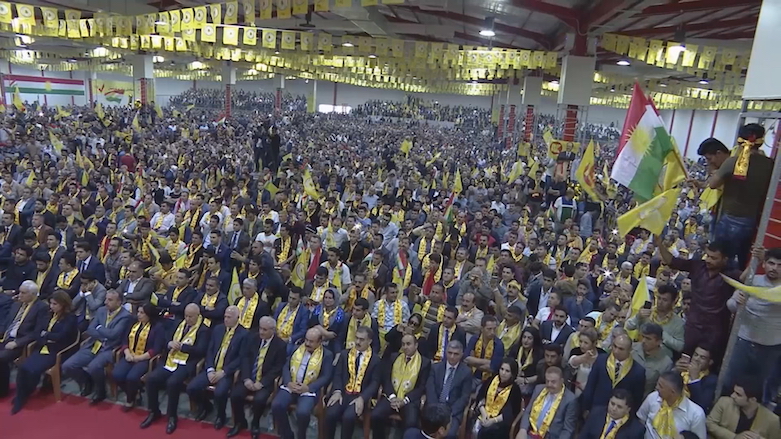As if the loss of oil-rich territory last year wasn’t painful enough, Iraq’s divided Kurds are bracing for a blow on the political front in the country’s May 12 elections.
Analysts estimate the Kurds’ loss of seats in Iraq’s parliament could reach double figures as their shrunken geographic footprint is compounded by a bitter feud between the two main political parties in semi-autonomous Kurdistan.
An independence referendum for the region held in September saw over 92 percent back secession — but Baghdad was incensed, after long warning that any plebiscite would be “illegal”.
In response, federal troops in October pushed Kurdish forces out of Kirkuk and its oilfields, along with other disputed areas in Nineveh and Salaheddin provinces in northern Iraq.
Baghdad also imposed economic penalties.
With Iraqi Kurdistan licking its wounds, the region’s historically dominant parties are attempting to rally their demoralised supporters, while trading blame over a split between the two camps.
-‘Treachery’ and ‘indecency’ –
Posters in Arbil, Kurdistan’s capital and heartland of the Kurdistan Democratic Party (KDP), urge voters to turn out in force “to defend our referendum” from within the Iraqi parliament.
The rival Patriotic Union of Kurdistan (PUK) in the town of Sulaimaniyah has been calling on people to “vote for a strong future in favour of the right to self-determination”.
But for the KDP, the PUK’s “treachery” has made it impossible to cooperate.
“We think Kirkuk has been occupied (by Iraqi federal forces) because of the treason by certain members of the PUK,” Khosro Kuran, a KDP leader, told AFP.
“We had no response when we proposed a unified Kurdish list for the whole country” ahead of the election, he added.
Quite the opposite, in the view of Saadi Bireh from the PUK’s political office; the KDP was the first to field its own candidates, after refusing several offers to agree on joint lists.
“What certain KDP leaders are saying reflects their political indecency, because instead of just considering us adversaries, they view us as enemies,” he said.
Alternative parties threaten to further split the Kurdish vote, such as Goran (Kurdish for change) and the newly created New Generation movement.
The result: 503 hopefuls on 77 candidate lists, competing for just 46 seats reserved in Iraq’s parliament for the provinces of Arbil, Sulaymaniyah and Dohuk, officially constituting the autonomous region.
– Balance of power shifted –
In Iraq’s last election in 2014, Kurdish parties won 62 out of parliament’s 329 seats, which included Kirkuk, Nineveh, Diyala and Baghdad.
“The loss of Kirkuk is a big moment in the history of Iraq post-Saddam Hussein,” said Adel Bakawan, director general of the Kurdistan centre of sociology at Soran University near Arbil.
Since then, “the balance of power has shifted against the Kurds. It’s difficult to give an exact figure. It will depend, but the loss of some seats is certain,” said Bakawan.
“For the Kurds, the city of Kirkuk is not only a source of oil, but also a major population centre in the electoral sense,” Bakawan added.
The loss of Kirkuk is a blow, acknowledged the KDP’s Kuran.
“In contrast to the 2014 elections, there will be no participation in the Kurdish territories outside the autonomous region, in the absence of Kurdish security forces to protect our voters,” he said.
In yet another setback for Kurdish parties, this will be the first time Kurds appear on candidate lists fielded by other ethnic blocs in their home region.
The most striking example is Mustafa Sheikh Kawa, grandson of Sheikh Mahmud Hafid Barzinji, who fought British occupation and set up a Kurdish state between 1920 and 1922. Kawa is running as a candidate for a bloc led by Shiite chief Amar al-Hakim.
“It’s an Iraqi list” said Saed Hisa Barzinji, an associate of Kawa. “Our aim is to serve the people of Kurdistan.”

